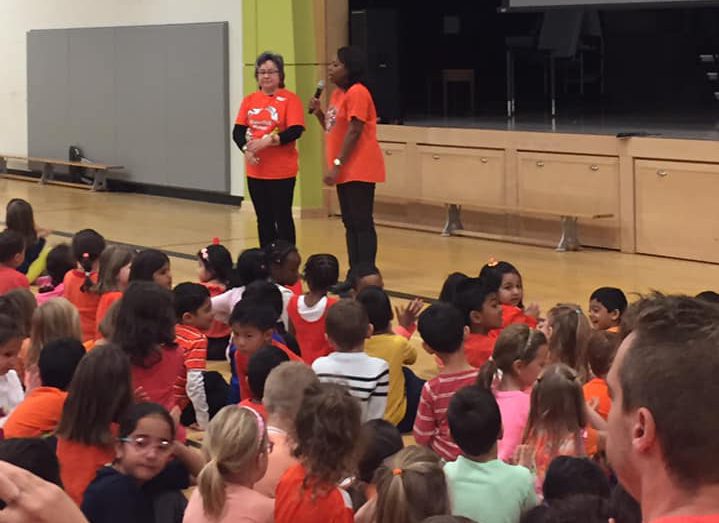Kindergarten to grade 12 students across the country are getting to learn about the intergenerational impact of residential schools on Indigenous people from a local survivor.
Phyllis Webstad appeared at Ottawa’s Chapman Mills Public School on Wednesday following the launch of the Paths to Reconciliation National Tour by the Orange Shirt Society and Canadian Geographic Education.
Principal Marva Major says it was an incredibly powerful and moving visit.
“As a school, we’ve known of Phyllis’s story since I would say the last three years,” Major says.
“I’m a new principal at the school and three years ago I shared the story with my staff and in doing so we continue to share it with our students, and it was just so valuable to have an opportunity to have her to share her truth personally with the students. She spoke for about an hour and shared her book as well, and the students were very focused and engaged because they had wanted to hear from her.”
Webstad will be visiting schools in a total of 12 cities throughout the tour that will end in Haida Gwaii in March 2020.
Canadian Geographic Education director of education, Ellen Curtis says the project is critical for the ongoing reconciliation between Indigenous and non-Indigenous people.
“We as a school we are really focusing on trying to create a culture of caring-a place where all of our students see themselves included, validated, and being part of a connected community. That’s really really important for us and so understanding the complexity of experiences and perspectives of Indigenous communities and how these have shaped and continue to shape our Canadian society,” Major says.
“As far as we’re concerned it’s critical to our children in them growing up as strong citizens of Canada so we want our students as well to understand that they have a role in creating these communities of hope, communities of respect and themselves be students with agency. Part of our mission statement for our school is students who make a difference, and I think seeing Phyllis and really understanding what she went through and seeing the passion and the power that she had to stand up and to never give up I think that was so pivotal for our students because it makes them think you know what my life experience is nothing like Phyllis’s. She did it; there is no excuse for me not to stand up for what is right.”
(Listen to Chapman Mills Public School Principal Marva Major with the author of this report in the audio file below)
We are honoured to welcome Phyllis Webstad #orangeshirtday to share her truths with us @chapmanmillsps – we are strengthening our relationships through reconciliation and learning, always. @OCDSB @CanGeoEdu pic.twitter.com/gOyTRdf9Q8
— Chapman Mills Public School (@chapmanmillsps) November 6, 2019
Something going on in the Cariboo you think people should know about?
Send us a news tip by emailing [email protected].










